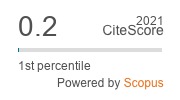Numerical Simulation and Comparative Assessment of PMSM Based Motor Charactersitics for Electric Vehicle Applications
Abstract
Worldwide, electric vehicles (EVs) are becoming more popular than traditional vehicles powered by fossil fuels. However, the higher cost of an EV's purchase means that it may remain a major roadblock for the market. Customers choose electric vehicles for a variety of reasons, including lower carbon emissions, better performance, and more. Environmental awareness and a vision for renewable energy are essential to ensuring the long-term viability of energy production. According to a recent study, the demand for electric vehicles will rise by 2-6 percent for every 1 percent increase in renewable energy sources. By altering the recharging power at a given time interval, electric vehicles (EVs) can offer new potential for delivering regulation services and a wide range of consumption options. Modeling electric vehicles is the primary subject of this dissertation. A Rinehart motion systems-AC motor controller- 'PM100DZ' will be used to replicate the performance of an Evoelectric 'AF-130' Permanent Magnet Synchronous Motor. Using this data, researchers were able to better understand how permanent-magnet motor drives work. Simscape blocks used to model PMSM and vector control are to be validated in this effort. As a last step, parameter estimation was used to tweak the Dynamic motor and Thermal models. Datasheet values and simulated data still differed, and this difference was investigated to determine its source.



